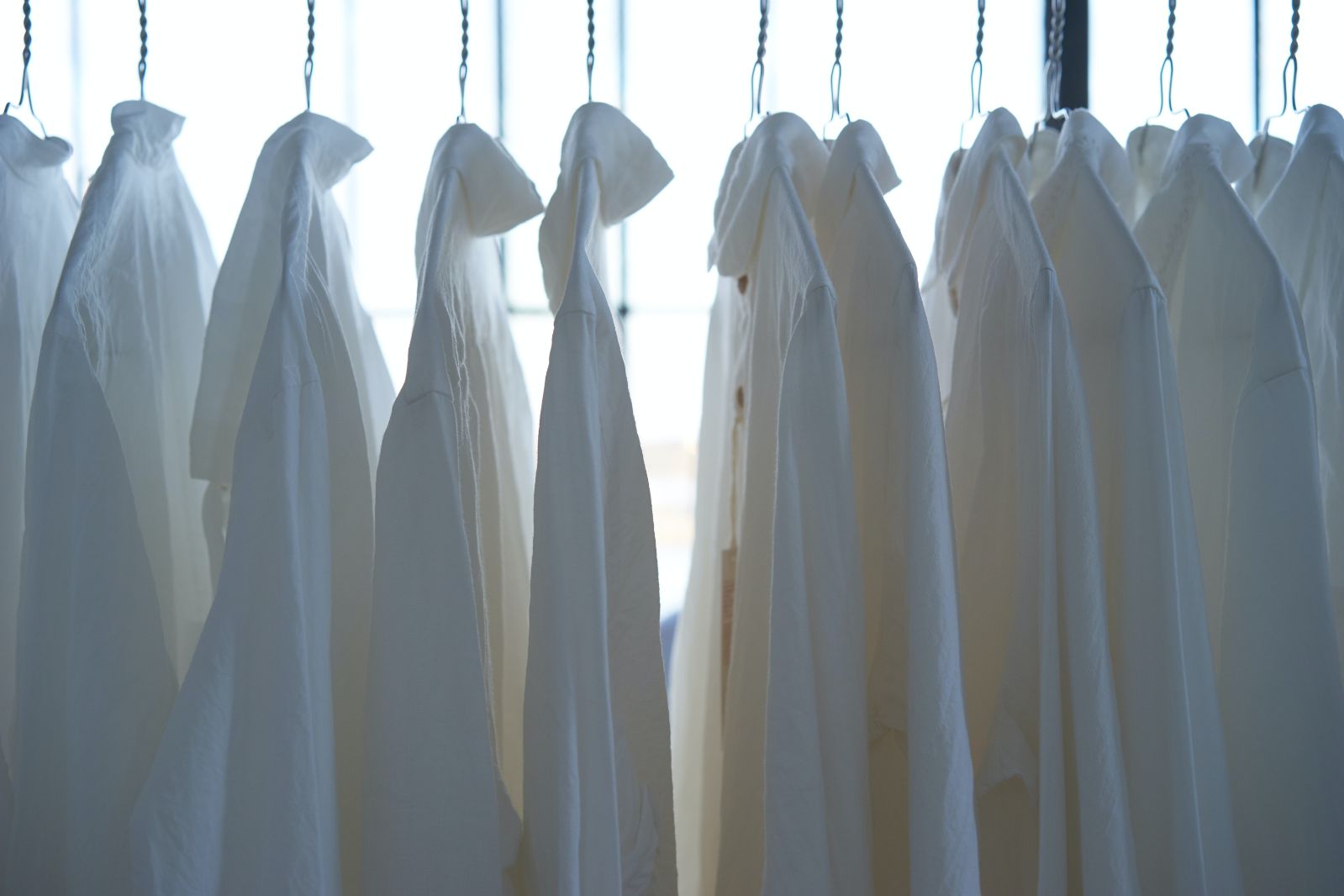Although washing your laundry in hot water may be a good way to get dirty clothes extra clean, there may be a cost to it in terms of the environment and your wallet. For those who are unsure of the benefits of washing clothes in cold water vs. hot water, we have listed both the advantages and disadvantages of doing so. Please keep reading.
When Should You Use Cold Water To Wash?
All fabrics can be washed in cold water. Energy bill savings is one of the main advantages of using cold water. A typical washing machine uses a minimum of 75L of water per wash and requires the water to be heated for hot washes.
This means that heating the water each time you wash a load in hot water will cost you extra, in contrast to cold water, which doesn’t need to be heated.
Other than for financial reasons, it is advised to wash delicate fabrics in cold water, such as:
- Silk
- Wool
- Dyed clothing
- Protein-based stains
Wool and silk fibers can lose their structure when washed in hot water, which shortens their useful life. These fibers aren’t as strong as synthetic fibers.
Furthermore, any dark-colored clothing or linen can bleed in a hot wash, so cold water is advised to maintain color intensity. Additionally, a cold wash is required to help remove the discoloration from protein-based stains.
Why Should You Use Cold Water Washing Works?
Modern washing machines are built to handle cold water. In addition to having enzymes that can begin to function in as little as 60°F, many detergents today are also designed for cold water, which improves performance.
- For the majority of clothes and other items that you can safely wash in a washing machine, cold water is fine. Grass on your child’s jeans or makeup smudges on a sweater is just two examples of the many stains that it can remove from clothing.
- Actually, cold water is best for dark, colorful, and delicate fabrics like lace and silk.
- Warmer water won’t remove all stains. For instance, hot water can actually cause sweat and blood to set into the fabric. Additionally, hot water has a tendency to cause certain fabrics to shrink, fade, and wrinkle.
- You could save money on energy with each load by not heating the water in your washing machine. Switching to colder water can reduce your gas or electric bill because 75 to 90 percent of the energy used by your washer is thought to be expended in warming the water.
- Clothing is less likely to shrink, fade, or otherwise become ruined when washed in cold water.
- The energy costs and time associated with ironing can be reduced by using cold water to smooth out wrinkles.
Cons Of Washing Clothes In Cold Water
Cons always exist, so it is best to be cautious about them. When it comes to fabrics like cotton, wool, and silk, cold water is not always the best option when it comes to your clothing.
- Spandex
- Nylon
- Polyester
Even knitted items benefit from being cleaned in hot water as opposed to cold. Even more effective at eradicating germs and halting the spread of disease than cold water, washing clothes in hot water will do.

When Should You Wash With Hot Water?
In the following situations, hot water washing is especially helpful:
- Heavily soiled items
- Oil and grease stains
- Whites
- Removing germs
The amount of dirt on your clothes will largely determine whether or not you wash them in hot water. While heavily soiled outdoor gear might need an intensive hot wash with additional detergent to get it completely clean, your “day-to-day” dirt might only need a quick warm wash.
Use warm water to help lift any oil or grease stains from the fabric, which is also recommended for stains like these. However, bear in mind that some fabrics can fade and shrink, so always read the label on your clothing.
It is advised that you first use cold water to displace any existing stains. Pre-treatments can also be a helpful tool for removing stains from wool and other temperature-sensitive fabrics.
A pre-wash soak gives the detergent time to work its magic and absorb all the oils and grime, and then when you wash the clothes, the chemical reaction in the surfactant will already have been activated.
Additionally, a hot wash may be helpful to prevent family members from contracting the illness again if your household is battling the flu or a cold. Hot water washing of face cloths, bedding, and towels reduces the likelihood of allergens like dust mites and the spread of germs.
Tips When Cold Water May Not Work
- On occasion, however, hot or warm water is preferable depending on the fabric or the situation. For example, it is simpler to wash knits and synthetic fabrics in warm water than blends of spandex, nylon, polyester, and rayon.
- Washing clothing and bedding in hot water can help stop the spread of germs if sanitizing is the goal, such as if you or a member of your family is ill.
- Another factor is the climate. Detergents might not work well in areas with harsh winters, where tap water can get as cold as 40°F. To wash clothes in these places, warm or hot water might be required.
Is It Better To Clean With Hot Or Cold Water?
The remaining dirt embedded in fabrics can be effectively removed by washing them in both hot and cold water. However, the lower the water temperature, the more detergent you will need to use because some detergents have trouble dissolving in the water below 15°C.
The Bottom Line
It can be difficult to determine which garments and fabrics to wash in cold water and which in hot water. The best option might be a cold-water wash, but make sure to first examine the label and the stain.


